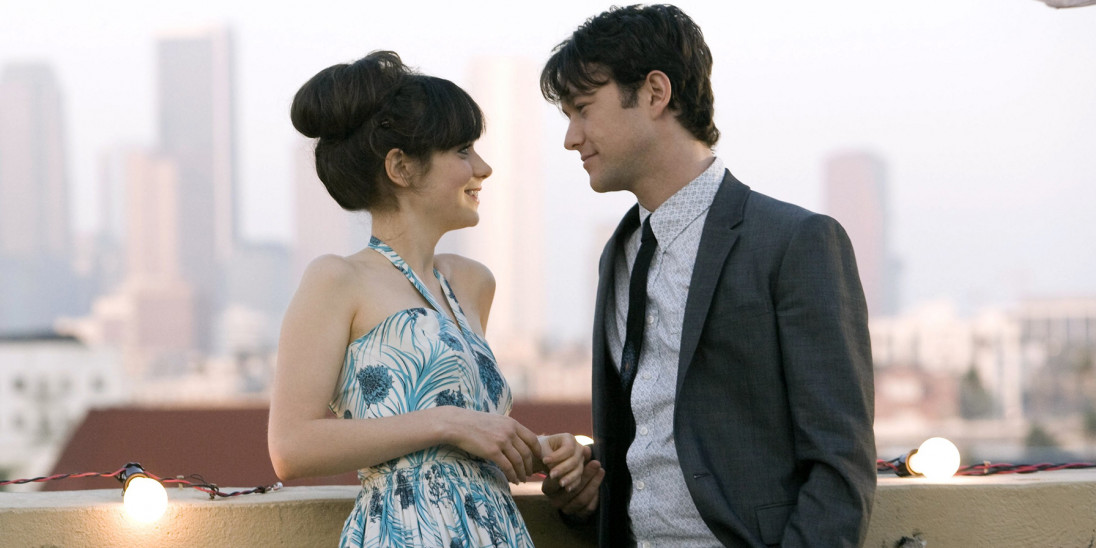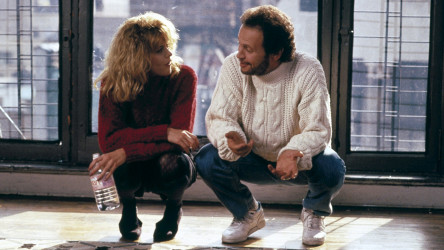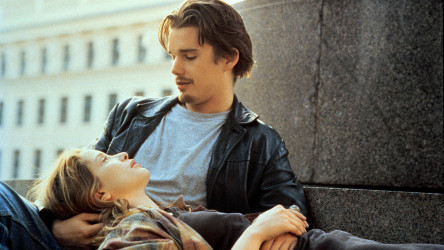500 Days of Summer(2009)
The standard boy-meets-girl formula gets a twist in this tricksy American comedy-drama.
Certificate
Age group12–16 years
Duration91 mins


When a film-maker sets out with the primary intention of dabbling with the somewhat formulaeic codes and conventions of contempory genre, it is usually the product of several misfired judgements bursting from a (otherwise well-established) director's mid-life-crisis-stricken brain; scraping the barrel for that final ground-breaking idea that will ultimately brand them as 'edgy'. This was not the case however, when budding music video director Marc Webb sprung onto the mainstream cinema scene in 2009, pushing the boundaries of the 'rom-com' genre with his directorial Hollywood debut (500) Days of Summer. With a history of directing music videos that span across the board genre-wise, from the likes of My Chemical Romance to artists such as Maroon 5, one could only imagine what visual concoction Webb would bring to the screen with his first feature-length film. These mere imaginings however, are brought forward with a certain ease. Aspects of film-making that could be considered the hornet's nest of Hollywood (that wouldn't dare to be poked at with a one-hundred million dollar pole, by even the most esteemed directors) are aplenty. The first notable visual trait in (500) Days, is its non-linear narrative structure. We are presented with a title card before each time-shift, which portray when and where (and even which season) the next scene will take place in. These transitional features consist of a simple design, in which a bracketed number displays which day (of the 500) it currently is, and an accompanying image portrays which season the day is taking place in. This allows for narrative creativity with absolute ease. The audience switches back and forth between days, weeks and months consistently, but are never once the subject of confusion. While there are many other notable visual features to comment on (the live-action/animation dance scene straight out of the Disney handbook and the 'expectations vs reality' scene spring to mind) it's hard to encapsulate the pure genius that bursts into life before you, without coming across as an over-excited teenage schoolgirl. So taking that into consideration (and for sheer fear of embarassment) i'll leave the rest of these qualities for you to see for yourself. Potentially of the most memorable aspect of the film (and with no suprise given Webb's background) is its soundtrack. From the nostalgia-inducing keyboard synths of Hall & Oates, to the haunting tones and erratic piano skills brought to the table by Regina Spektor, there is something here for everyone. Much like the film, the soundtrack induces every emotion in the viewer; heightening certain scenes' roles in the film and in turn giving all new meanings to the accompanying tracks. Rarely do I persist to unearth a film's soundtrack, as the majority are mere blockbuster shoe-ins that serve the sole purpose of allowing the big-wig-powers-that-be behind the production to squeeze out every last penny that they possibly can (it's a business at the end of the day and I can't blame them) however, as a man that is (in)famous for bringing out the images behind music, and a man that clearly values the prestige that certain tunes can bring to the visual medium, it's clear that Marc Webb had contrasting ideas to the common soundtrack; it is as much a piece of art as the film is itself. With all the focus on the creative experience that (500) Days has to offer, it's hard to summarise the actual plot of the film. So I shan't attempt to. However, it's worth noting that the majority of girls i've asked hate it with a passion, and nearly every man I know thinks it is absolutely brilliant (with some even classing it as one of their favourite films of all-time) so if I had to market it personally, I would class it as an unorthodox rom-com for men. In conclusion, and by no means intending to spoil the plot for anyone who hasn't seen it yet, it becomes apparent that the moment the credits roll, the notable line from the official description of the film rings resoundingly true, "This is not a love story, it's a story about love." With this being the ethos of the film, it's no suprise that the film garnered such mixed responses between the sexes, but many viewers will undoubtedly see the film as a reflection of their lives, for both negative and positive reasons; what they see will either please them immensely or greatly insult them. It seems that by casting stunning starlet Zooey Deschanel (Summer) as the female lead, the picture takes on the more daring role of a cautionary tale for the 21st Century male, as opposed to the explicitly feminine rom-com that the film's posters and trailers make it out to be. Do the female audiences watching it see themselves in Summer and in turn feel repulsed by what they see? I will never know. All I do know however, is that I have never related to a film's protagonist on such a personal level as much as I have with Tom (Joseph Gordon-Levitt) and this is potentially the reason why I love (500) Days Of Summer so much; I am seeing myself on-screen. In the film's concluding second it is revealed the deeper meaning behind the film's, supposedly blatent, title. It is with this fleeting final moment that the audience discovers that the (cliché to say) roller-coaster of emotion that Tom endeavoured to ride throughout the jumbled course of the film, was more than worth it; showing that while certain aspects of life will end, new horizons will undoubtedly arise not so long after. For someone, much like myself, who finds a certain form of identity within the character of Tom, there is nothing more rewarding than the feeling of being forced to share such raw enlightening emotions with the lead; especially after such an arduous experience. If at the very moment you turn off a film, you forget it, then that is my definition of a bad film. Marc Webb's (500) Days Of Summer is the polar opposite to this notion and thus, in my eyes, is filmic perfection. This is the way all films should be, and (500) Days should go down in history as a beacon, a shining example of the effect that a film can have on an audience, when it's not bound by the codes and convetions of the (often) mundane mainstream.
Print this review
Romantic comedy in which Harry and Sally first detest each other, then have a long friendship before finally realising it may be something more.
Certificate

Funny, touching love story set in the hubub of 60s New York, in which insurance clerk CC Baxter finds himself caught a tricky love triangle.
Certificate

Charming, offbeat romance about a young tourist who persuades a French stranger to get off the train with him in Vienna to wander round for the night.
Certificate